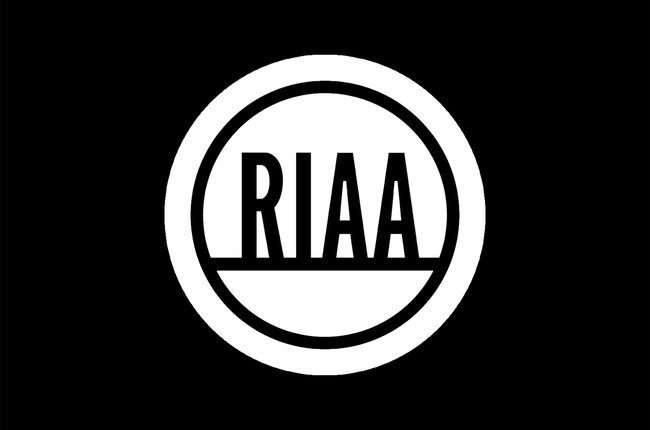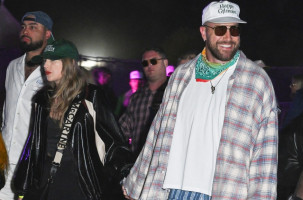"We do not believe the letter accurately characterizes our position," the RIAA said in response.
A coalition of international trade bodies, representing thousands of composers, authors and songwriters from around the world, has voiced its opposition towards the Recording Industry Association of America (RIAA) for refusing to recognize the ‘moral rights' of creators and musicians.
The Music Creators of North America (MCNA), Songwriters Guild of America (SGA) and British Academy of Songwriters, Composers and Authors (BASCA) are among the organizations who have signed an open letter protesting against submissions that RIAA has made to the U.S. Copyright Office as part of its "Study on the Moral Rights of Attribution and Integrity."
Enshrined in international copyright law since 1928, moral rights were devised to protect the reputation of an author of a copyright-protected work and exist independently from economic rights, which cover the licensing, reproduction, broadcast or public performance of a song.
Moral rights, which are sometimes called ‘personality rights,' are designed to ensure that a songwriter, visual artist or author receives attribution when their work is used, for example the right to have their name credited on an album or song.
Moral rights also dictate that an author or composer has the right "to object to any distortion, mutilation or other modification" of the work that could damage their "honor or reputation," regardless of who owns the copyright. They also give creatives the right not to be attributed on a work, if they so choose, or to be credited under a pseudonym.
Examples of how moral rights can apply in practice is the right of an artist or songwriter to object to their work being used in a political campaign or films that they find objectionable. In 2002, singer Connie Francis sued Universal Music for allowing her recordings to allegedly be used in two films containing explicit acts of sex and violence, including rape and sexual acts involving minors. Francis lost her case (which also included claims of underpayment of royalties), but proponents of moral rights argue that she would have stood a better chance had moral rights been enshrined in U.S. law.
To date, 172 countries have signed up to the copyright mandate as outlined in Berne Convention, including the U.S., which joined in 1989. However, the U.S. has always adopted a narrower interpretation of the law surrounding moral rights and has continually refused to officially recognize them in the same way that other countries do.
1990's Visual Artists Rights Act (VARA) does grant a small set of moral rights to visual artists, but only to paintings, drawings, prints, sculptures and still photographic images produced for exhibition. Musicians, songwriters and composers receive no such protection, angering some in the music business.
In response, this year the U.S. Copyright Office conducted a study into the issue, including testimonies from music industry and song writing organizations. The RIAA was one of the bodies who participated, arguing that the law surrounding attribution was too "broad," "vague" and "problematic" to become statutory law in the U.S.
A key part of the RIAA's defence is that a government mandate is not needed because attribution is already an essential and well established part of the music business. It argues that the introduction of a new statutory attribution right, "in addition to being unnecessary, would likely have significant unintended consequences."
Those consequences, according to the RIAA, include the extra administrative and data management costs of compiling and servicing the attribution data, not just for labels but for streaming and digital music companies, who have helped the music industry return to profit after years of decline.
"We urge the Office to avoid legislative proposals that could hamper this nascent recovery by injecting significant additional risk, uncertainty and complexity into the recorded music business," states RIAA's submission to the Copyright Office, dated May 15 2017.
Unsurprisingly, the record labels body's position has angered those in the creative and song writing community, leading to the issuing of open letter, addressed to RIAA chairman and CEO Cary Sherman and president Mitch Glazier.
"The RIAA's argument prioritizes the inconvenience of dealing with accurate metadata over the principle of the protection of the rights of the people upon whose work the music business is built," the letter states.
"In our view, and the view of many in the creator community, this is not only irresponsible, it represents a betrayal of the ‘greater common purpose' to which so many of us are committed—a purpose with which the RIAA claims to agree."
"Accurate metadata is essential to the healthy digital future of music creators," continues the 3-page letter. "Yet, in your Moral Rights submission, the RIAA seems to approach attribution and the accuracy that metadata provides as if it were a threat."
Slamming RIAA's stance, the signatories -- which also include the European Composer & Songwriter Alliance (ECSA) and Songwriters of North America (SONA), among others – says the continued refusal to recognize the ‘moral rights' of songwriters provides "ethical and political cover for Google and others to treat the internet as some kind of accountability-free zone."
It concludes: "We urge you and your members to think carefully about how to move forward from here in ways that truly reflect the interests of those you claim to protect. There are corporate players here, whose unfettered commercial self-interest masquerades as ideology and who capitalize upon our perceived divisions."
Replying to the letter, a spokesperson for RIAA told Billboard in a statement, "We have the deepest respect for our songwriter colleagues and have enjoyed a collaborative, constructive relationship on many issues."
"We strongly believe that music creators deserve attribution for their work. Our primary concern is how it's achieved. Many of our colleagues in the music community believe that the marketplace is already over-regulated and that has only complicated doing business as well as undermined the value of music."
"We should tread cautiously in advancing any more rules or regulations," said the spokesperson, adding, "We welcome the opportunity to work with our songwriter partners on voluntary mechanisms to maximize attribution for all creators."








